
“There can be no rebirth without a dark night of the soul, a total annihilation of all that you believed in and thought that you were.”
(Hazrat Inayat Khan)
The Jungian Film School over the course of 10 weeks will be looking at films dealing with the theme of The Night Sea Journey, the onerous descent into the underworld, where in the words of F. Scott Fitzgerald “it is always three o’ clock in the morning day after day” when one has entered into the Dark Night of the Soul.

Course Duration: 10 Weeks
Course Start Date: 20 March 2021
Registration closes at midnight (PST), Thursday the 18th of March!
Date
Topic
Films
Presenter
20 March 2021
The Night-Sea Journey in the Film
Titanic
Francis G Lu
27 March 2021
Fairy-tales of Happiness: on the Road to Soul’s Destination
Blue Beard, Tale of Tales, Frog Princess
Nadi Fandini
3 April 2021
The Night-Sea Journey in Film: an exploration
The Sweet Hereafter, Taxi Driver, The last Jedi, There Will Be Blood
Toby Reynolds
10 April 2021
What Zombie Films can Teach us about our Collective Night Sea Journey: depth psychological perspectives
Train to Busan
Kevin Lu
17 April 2021
Journey to the Heart of Darkness
Apocalypse Now
John David Ebert
24 April 2021
The Dark Underworld of Late Capatilism
Fight Club
Sheila Kunkle
1 May 2021
Story Arc and Noah’s Ark – Transformation Narratives in Film and Myth
After Hours, Time Bandits
Christopher Hauke
8 May 2021
Personal Transformations Through an Encounter with Death
Ikiru
Francis G Lu
15 May 2021
Creativity, Cultural Trauma and Jung’s Process of Individuation
Never Look Away
Ronnie Landau
22 May 2021
The Anatomy of Melancholy: Archetypal and Personal
Melancholia
Stefano Carta
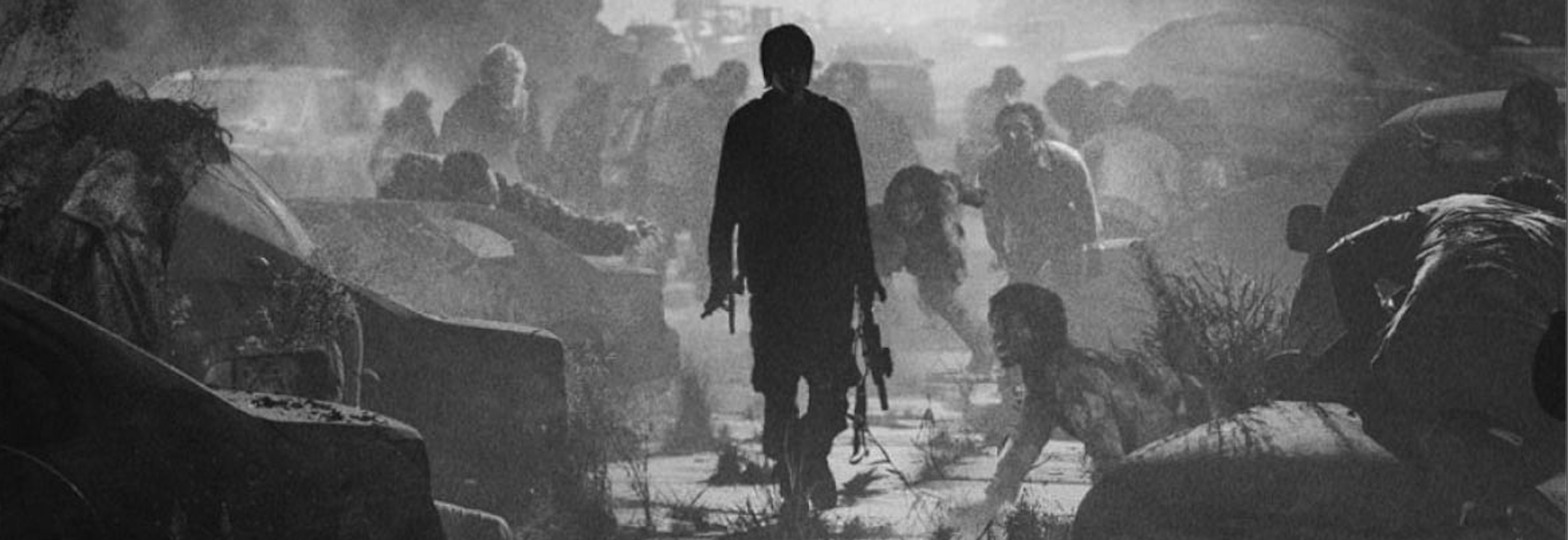

- A live interactive lecture recorded for later viewing for those unable to attend live.
- A reading list and list of essential viewing.
- A psychoeducational application – designed to allow you to grapple with the theme of the module, to stimulate you creatively and allow you to investigate your own psychic economy (unconscious) on the topic.
- Participation on a private and facilitated Facebook forum where you will interact with other students and facilitators on the module’s themes, films, and applications.
- Time requirement: 2-4 hours per week, studying can be done in your own time.
* Due to copyright restrictions we do not provide the films or links to films and as such need to be viewed independently by each student.
St John of the cross the Spanish poet and Roman Catholic mystic from the 16th century wrote an epic poem titled “Dark Night of the Soul in which the soul travels from its bodily home to its union with God. However, his term has been adopted by Jungian psychoanalysis to more broadly any experience of tremendous suffering that may lead to transformation or redemption. Having a taste of the numinous comes at a high price – which will be clearly demonstrated in the chosen films.
There are many examples of this type of existential crisis in which one may find oneself. The Night Sea Journey can be precipitated by loss of purpose and meaning in one’s life, despair and depression, utter uncertainty of self and identity, disintegration and disenchantment with ourselves or our umwelt. Many will run from the experience of the Night Sea Journey, or medicate it away, but if we are to take individuation seriously, the only way out is through, the descent is necessary.
“That is the point of the night sea journey—to be born into yourself. There, you are in the amniotic fluid, in an alchemical substance once again. You are journeying toward your own life. You are preparing for your fate. The promise is exhilarating, but the dangers are extreme. You have to avoid being just one of the crowd and instead take the chance of being born an individual.”
(Thomas Moore)

Oh blessed nature, blessed are thy works, for that thou makest the imperfect to be perfect through the true putrefaction, which is dark and black. Afterwards thou makest new and multitudinous things to grow, causing with thy verdure the many colours to appear.
(Carl Gustav Jung)
What better medium than film to understand this phenomenon, the journey it will take you from rough and stormy seas, to a rebirthing, discarding of the false self, and resurrection of the true Self. Film and the Night Sea Journey course will allow for you to perhaps understand your own dark night, and better understand the paradoxes that are brought to life through the inferno.
Through these carefully chosen films we will witness characters going through the mess, the dark, the unconscious, nightmarish disasters, shattered hopes and dreams, and how they best navigate a way out of the belly of the beast without it devouring them, stepping into a more integrated, individuated, conscious psyche, where meaning resides, and life is reaffirmed.

Registration now open!
Registration closes midnight (PST) Thursday 18 March 2021.
If you have any queries, please email anja@appliedjung.com.


 Francis G. Lu, MD, is the Luke & Grace Kim Professor in Cultural Psychiatry, Emeritus, at the University of California, Davis. As a Distinguished Life Fellow of the American Psychiatric Association (APA), Dr. Lu has contributed to the areas of cultural psychiatry including the interface with religion/spirituality, psychiatric education, diversity/inclusion, mental health equity, and psychiatry/film. He has presented at every APA Annual Meeting since 1984. From 2002 to 2019, he served on the APA Council on Minority Mental Health and Health Disparities. He was awarded APA Special Presidential Commendations in both 2002 and 2016 for his contributions to cultural psychiatry and in 2020, he received the APA Distinguished Service Award. In 2008, the American Psychiatric Foundation awarded him an Advancing Minority Mental Health Award, and the Association for Academic Psychiatry awarded him its Lifetime Achievement in Education Award. In 2020, the Society for the Study of Psychiatry and Culture awarded him the Lifetime Achievement Award. In 2021, the American College of Psychiatrists awarded him its Distinguished Service Award.
Francis G. Lu, MD, is the Luke & Grace Kim Professor in Cultural Psychiatry, Emeritus, at the University of California, Davis. As a Distinguished Life Fellow of the American Psychiatric Association (APA), Dr. Lu has contributed to the areas of cultural psychiatry including the interface with religion/spirituality, psychiatric education, diversity/inclusion, mental health equity, and psychiatry/film. He has presented at every APA Annual Meeting since 1984. From 2002 to 2019, he served on the APA Council on Minority Mental Health and Health Disparities. He was awarded APA Special Presidential Commendations in both 2002 and 2016 for his contributions to cultural psychiatry and in 2020, he received the APA Distinguished Service Award. In 2008, the American Psychiatric Foundation awarded him an Advancing Minority Mental Health Award, and the Association for Academic Psychiatry awarded him its Lifetime Achievement in Education Award. In 2020, the Society for the Study of Psychiatry and Culture awarded him the Lifetime Achievement Award. In 2021, the American College of Psychiatrists awarded him its Distinguished Service Award.
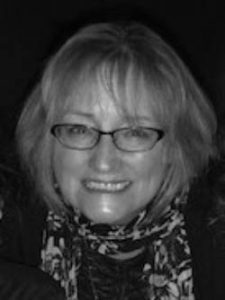 Sheila Kunkle is Associate Professor in the College of Individualized Studies at Metropolitan State University in St. Paul, Minnesota. She is editor of the collection Cinematic Cuts: Theorizing Film Endings (2016) as well co-editor, along with Todd McGowan, of Lacan and Contemporary Film (2004). She has authored numerous essays and contributing chapters on psychoanalysis and film, including: “Women Between Worlds: A Psychoanalysis of Sex in Blade Runner 2049” in Lacanian Perspectives on ‘Blade Runner 2049’ (2021), “Female Fight Club,” in Lars von Trier’s Women (2017), “Parasite and the Parallax of Social Relations under Capitalism” in Crisis and Critique (2020), and “Against Limits: Deleuze, Lacan, and the Possibility of Love,” in Psychoanalyzing Cinema (2012). She is currently working on a book tentatively entitled Woman in Film.
Sheila Kunkle is Associate Professor in the College of Individualized Studies at Metropolitan State University in St. Paul, Minnesota. She is editor of the collection Cinematic Cuts: Theorizing Film Endings (2016) as well co-editor, along with Todd McGowan, of Lacan and Contemporary Film (2004). She has authored numerous essays and contributing chapters on psychoanalysis and film, including: “Women Between Worlds: A Psychoanalysis of Sex in Blade Runner 2049” in Lacanian Perspectives on ‘Blade Runner 2049’ (2021), “Female Fight Club,” in Lars von Trier’s Women (2017), “Parasite and the Parallax of Social Relations under Capitalism” in Crisis and Critique (2020), and “Against Limits: Deleuze, Lacan, and the Possibility of Love,” in Psychoanalyzing Cinema (2012). She is currently working on a book tentatively entitled Woman in Film.
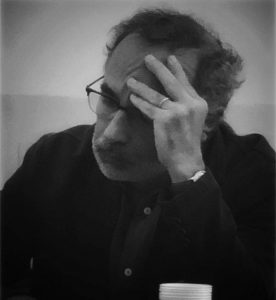 Stefano Carta is a Psychologist and a Jungian analyst graduated at the C.G. Jung Institute in Zurich, Switzerland, and Professor of Dynamic and Clinical Psychology at the University of Cagliari, Italy. Has specialized in psycho-somatic medicine, Gestalt, Bioenergetic psychotherapy, systemic family therapy, and Analytical Psychology. He is the liason for the International Association of Analytical Psychology in Slovenia.
Stefano Carta is a Psychologist and a Jungian analyst graduated at the C.G. Jung Institute in Zurich, Switzerland, and Professor of Dynamic and Clinical Psychology at the University of Cagliari, Italy. Has specialized in psycho-somatic medicine, Gestalt, Bioenergetic psychotherapy, systemic family therapy, and Analytical Psychology. He is the liason for the International Association of Analytical Psychology in Slovenia.
He is Honorary Professor at the Department of Psychoanalytic Studies of the University of Essex, UK., member of the International Association of Analytical Psychology, and of the Associazione Italiana di Psicologia Analitica (AIPA), the oldest Jungian Psycho-analytical society in Italy, of which he has been the President for the 2002-2006 term. He has been the representative for Italy at the United Nations’ International Union of Psychological Sciences and consultant for Unesco, for which has edited a three-volumes entry- Psychology – for the Encyclopedia of Life Support Systems.
In 1993, he has founded the first research group in ethno-psychology in Italy devoted to clinical interventions and scientific research in this field.As a consultant, he worked in the field of ethno-psychology in the refugee camp of Daadab, Kenya, and in Rwanda. He supervises and carries out counseling activities and psychotherapy to migrants in Italy, and supervises several centers that belong to the national “Sistema di protezione per richiedenti asilo e rifugiati”. He is he editor-in chief of the oldest Jungian Journal in Italy: the Rivista di Psicologia Analitica and has been Deputy Editor for Europe of the Journal of Analytical Psychology for six years (2013-19). Has been guest lecturer in Germany, Switzerland, United Kingdom, USA, Japan, Slovenia, Greece and Denmark, and has published over 90 articles and books.In 2019, he has been visiting professor at Kyoto University, Japan. Lives between Rome and Cagliari, Italy.
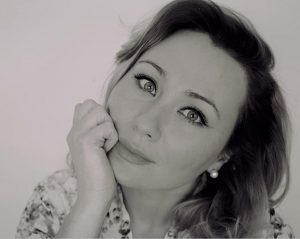 Nadi Fadina, Ph.D. is a writer, screenwriter, actress, media entrepreneur and film scholar. Born in Siberia, Nadi is now based in London where she manages a film production house. She also sits on the Advisory Board of NV Global Group Fund.
Nadi Fadina, Ph.D. is a writer, screenwriter, actress, media entrepreneur and film scholar. Born in Siberia, Nadi is now based in London where she manages a film production house. She also sits on the Advisory Board of NV Global Group Fund.
Over the years Nadi has been involved in a variety of arts and media related projects, working in front and behind the camera, as well as on stage. With her academic hat on, Nadi is the co-author of The Happiness Illusion: How the Media sold us a Fairytale, the author of The Second Loss of Androgyny (both published by Routledge, 2015), and Cultural Hegemonies of Forms and Representation (Routledge, 2018). Her upcoming monograph Fairytale Women: Sex in the Lands of Socialist Realism is a groundbreaking research into the unknown world of animation, totalitarian regimes and gender representations on screen. Nadi has taught film and media studies at University of Bedfordshire, and film and psychoanalysis at Goldsmiths, University of London.
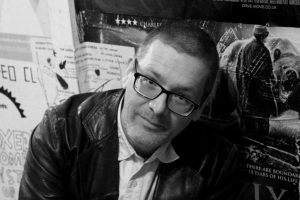 Toby Reynolds is a film writer, academic, lecturer, and curator, obtaining his PhD from the University of East Anglia in 2018. His research interests include: post-Jungian perspectives on screen studies, auteur directors, gender within film with a focus on masculinities, and film symbolism. Other interests are: European national cinema, neo-noir film and the figure of the on-screen vampire. His favourite directors include Lars Von Trier, Sam Mendes, Paul Thomas Anderson, Takeshi Kitano, David Lynch, Atom Egoyan and Steven Spielberg. His podcast, Dr Kino’s Film Emporium can be found here, and his website here.
Toby Reynolds is a film writer, academic, lecturer, and curator, obtaining his PhD from the University of East Anglia in 2018. His research interests include: post-Jungian perspectives on screen studies, auteur directors, gender within film with a focus on masculinities, and film symbolism. Other interests are: European national cinema, neo-noir film and the figure of the on-screen vampire. His favourite directors include Lars Von Trier, Sam Mendes, Paul Thomas Anderson, Takeshi Kitano, David Lynch, Atom Egoyan and Steven Spielberg. His podcast, Dr Kino’s Film Emporium can be found here, and his website here.
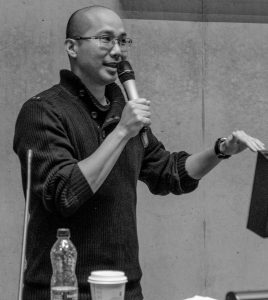 Kevin Lu is the Senior Lecturer and Director of the MA Jungian and Post-Jungian Studies in the Department of Psychosocial and Psychoanalytic Studies, University of Essex. He is a former member of the Executive Committee of the International Association for Jungian Studies and a member of Adjunct Faculty at Pacifica Graduate Institute. Kevin’s publications include articles and chapters on Jung’s relationship to the discipline of history, Arnold J. Toynbee’s use of analytical psychology, critical assessments of the theory of cultural complexes, sibling relationships in the Chinese/Vietnamese Diaspora, racial hybridity, and Jungian perspectives on graphic novels and their adaptation to film.
Kevin Lu is the Senior Lecturer and Director of the MA Jungian and Post-Jungian Studies in the Department of Psychosocial and Psychoanalytic Studies, University of Essex. He is a former member of the Executive Committee of the International Association for Jungian Studies and a member of Adjunct Faculty at Pacifica Graduate Institute. Kevin’s publications include articles and chapters on Jung’s relationship to the discipline of history, Arnold J. Toynbee’s use of analytical psychology, critical assessments of the theory of cultural complexes, sibling relationships in the Chinese/Vietnamese Diaspora, racial hybridity, and Jungian perspectives on graphic novels and their adaptation to film.
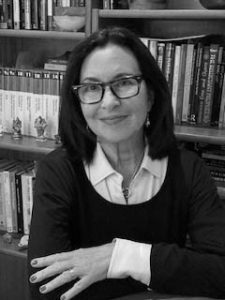 Ronnie Landau MA, LPC, is a Certified Jungian Psychoanalyst and senior training analyst and supervisor with the Inter-Regional Society of Jungian Analysts and the Philadelphia Association of Jungian Analysts. Her private practice is in Philadelphia, Pennsylvania. Ms. Landau has served the Jungian community in her previous roles as President and Director of Training for the Philadelphia Association of Jungian Analysts. She is currently President Elect for CNAJSA. (Council of North American Jungian Societies)
Ronnie Landau MA, LPC, is a Certified Jungian Psychoanalyst and senior training analyst and supervisor with the Inter-Regional Society of Jungian Analysts and the Philadelphia Association of Jungian Analysts. Her private practice is in Philadelphia, Pennsylvania. Ms. Landau has served the Jungian community in her previous roles as President and Director of Training for the Philadelphia Association of Jungian Analysts. She is currently President Elect for CNAJSA. (Council of North American Jungian Societies)
Ms. Landau lectures widely throughout the U.S and Zurich, Switzerland. She is the author of The Queen of Sheba and Her Hairy Legs, The Exile and Redemption of the Erotic Feminine in Western Monotheism and Jungian Process. Ms. Landau is currently interested in cultural trauma, genocide, and the impact of these forces on the psyche and the collective.
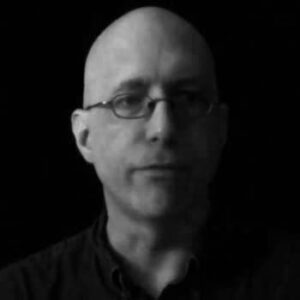 John David Ebert is a cultural critic, poet and philosopher who has written over 30 books on various issues such as understanding contemporary art, global warming and catastrophe, the cult of the dead celebrity, movies, graphic novels and literature. He has over 800 videos on You Tube examining the works of various thinkers such as Deleuze and Guattari, Heidegger, Oswald Spengler, Alain Badiou, etc. He is the author The Autobiography of John David Ebert, The New Media Invasion, Art After Metaphysics, Dead Celebrities Living Icons and poetry collections such as Gravity Girl, Gilgamesh Redux and Archai, a history of the evolution of life on this planet.
John David Ebert is a cultural critic, poet and philosopher who has written over 30 books on various issues such as understanding contemporary art, global warming and catastrophe, the cult of the dead celebrity, movies, graphic novels and literature. He has over 800 videos on You Tube examining the works of various thinkers such as Deleuze and Guattari, Heidegger, Oswald Spengler, Alain Badiou, etc. He is the author The Autobiography of John David Ebert, The New Media Invasion, Art After Metaphysics, Dead Celebrities Living Icons and poetry collections such as Gravity Girl, Gilgamesh Redux and Archai, a history of the evolution of life on this planet.
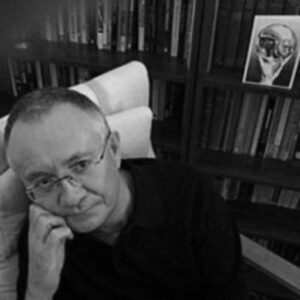 Christopher Hauke is a Jungian analyst in private practice and Senior Lecturer emeritus at Goldsmiths, University of London interested in the applications of depth psychology to a wide range of social and cultural phenomena including film. His books include Jung and the Postmodern: The Interpretation of Realities, (2000); Human Being Human. Culture and the Soul (2005) Visible Mind. Movies, Modernity and the Unconscious.(2013). He has co-edited two collections of Jungian film writing: Jung and Film. Post-Jungian Takes on the Moving Image (2001) and Jung and Film II – The Return (2011).
Christopher Hauke is a Jungian analyst in private practice and Senior Lecturer emeritus at Goldsmiths, University of London interested in the applications of depth psychology to a wide range of social and cultural phenomena including film. His books include Jung and the Postmodern: The Interpretation of Realities, (2000); Human Being Human. Culture and the Soul (2005) Visible Mind. Movies, Modernity and the Unconscious.(2013). He has co-edited two collections of Jungian film writing: Jung and Film. Post-Jungian Takes on the Moving Image (2001) and Jung and Film II – The Return (2011).
His short films, documentaries One Colour Red and Green Ray and the psychological drama Again premiered in London venues and at congresses in Barcelona, Zurich and Montreal. In addition to new film projects he is now researching the limits of rationality, and the place of the irrational in our lives. http://christopherhauke.com/
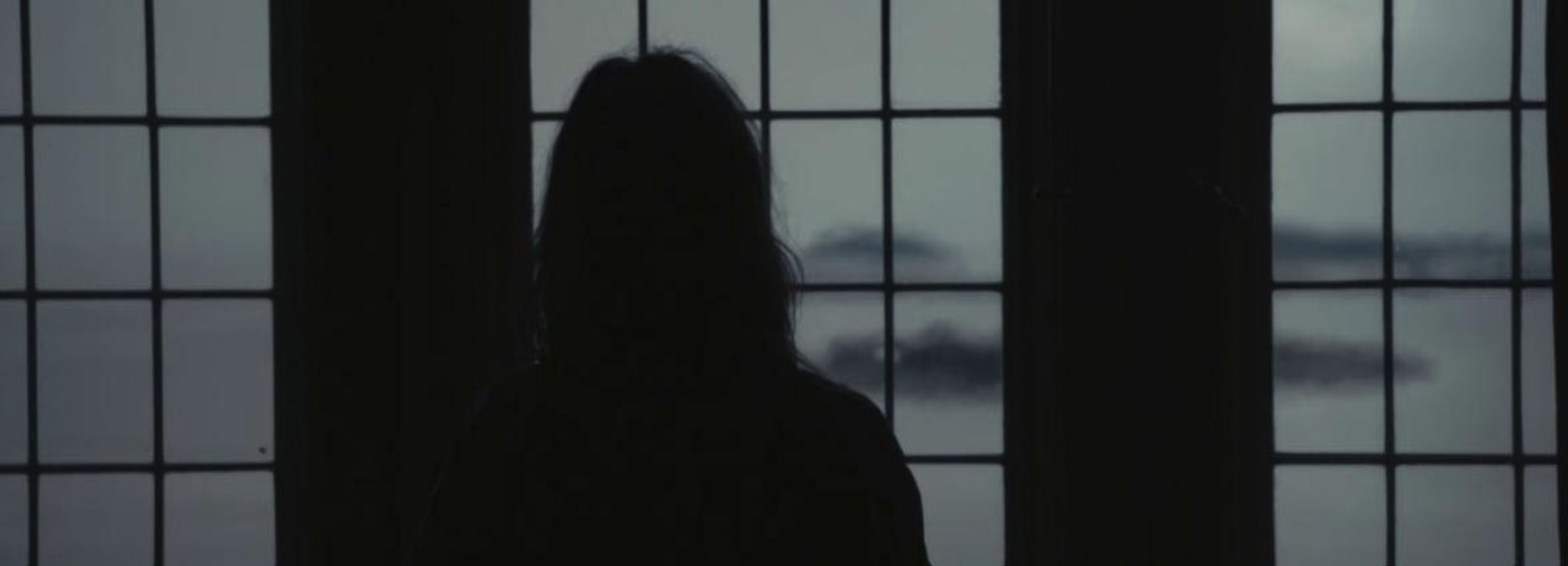

Films, series, and animations are agents of expression par excellence, giving form to the archetypal and collective mythologies that encode and define the spirit of our time. The global zeitgeist is both captured and symbolised by the cinematic art form. Jungian theory offers an illuminating framework through which to view and understand the metaphorical, allegorical, and symbolic expressions of film. To unlock the secrets of the soul one needs to understand the language of the psyche. In this regard looking at film through a psychoanalytic lens is an invaluable language, providing a map and anchoring points that the intrepid film maker, critic, or aficionado may use to orient themselves within the imaginal landscape of motion picture art.
Film helps us decipher what is going on within, and around us. As Carl Gustav Jung said “Man woke up in a world he did not understand, and that is why he tries to interpret it.”
To learn the language of the psyche and its application to the genre of film join us for a rich, illuminating, and in-depth exploration of psyche & cinema.

“First of all I would like to share my appreciation for the Jungian Film School program. A special thank you goes to all of the speakers and to all fellow participants who journeyed with me during the ten-week program. As an introductory program it was an excellent learning experience from a Jungian viewpoint on films, archetypes, and personal reactions and responses. At least for me, the encounter with the powerful archetypes at the beginning served to open up my psyche allowing me to participate in a deep way from the first meetings. I also appreciated the applications which provided me with the opportunity to reflect on the movies, the archetypes presented by the lecturers, the story lines, and the personal life experiences tied to the archetypes and/or the movies. I am a Jungian-oriented psychotherapist, and I make use of movies in my work with my clients, besides using other media such as fairy tales, myths, literature, drama, etc. I have found movies to be useful when working with children, individuals, couples, and families to provide psychoeducation, gain insight into one’s situation, learn emotional, social and behavioral skills, to understand oneself and know oneself (Know Thyself), etc. I was attracted to the Jungian Film School program because of my lifelong passion for movies.”
-Nerina Cecchin
“Hello fellow Jungian film appreciators, now aficionados! I wish I could take the course all over as each module was so deep, it is hard to fathom their implications in a single week’s time. Good to be on a journey with you all and I wish you well in the days to come.”
– John W Comeford (Film maker)
“Grazie a Tutti! Thanks to All!
This fate that got us together.
The movies we watched.
The Images and thought we created.
The connection beyond our Egos.
Grateful and Blissful experience.
Enjoy the rest of the Movie!”
-Elisa Superbi
“I hope I’m not too late in posting this, but I wanted to say a sincere and heartfelt thanks to all who were involved in the organisation of this course, those who gave lectures and to all my fellow students. It has been a stimulating and enlightening experience. I loved all the lectures, and it almost seems unfair to single some out, but nevertheless, I must say that particular high points for me were Kevin Lu’s talk on the Persona and Steven Anthony Farah’s presentation on Jung and the second personality. I actually feel a bit bereft that I will no longer be receiving such mind-expanding information each week. Reading everyone’s applications has been equally inspiring. It was particularly good to see some of you on the Zoom conference.
I will sign off by way of a brief description of a less satisfying but amusing experience for me on the course. I had significant difficulty in finding a decent copy of the film ‘Shin’ and eventually was reduced to viewing a very poor quality copy on Youtube. The sound was so faint and distorted that I had to use use Youtube’s ‘make it up as you go along and hope for the best’ subtitles. You may recall from the film that David’s father, Peter, refuses to let him go to London to study music. There follows an emotional scene when David’s music teacher visits the boy’s father to plead with him to reverse this decision. The music teacher passionately cries out ‘For god’s sake, don’t stop him leaving, Peter!’ However, the subtitles read ‘For god’s sake, don’t stop him eating pizza!’ There were many other ‘howlers’ like this, so as you can imagine the full, serious emotional impact of the film was somewhat lost on me. Sending gratitude and good wishes to all.”
– Jenni Armstrong
“I believe artists that create movies can be intuitive, but films are also created in collaborative interaction. For me, relationships frequently trigger new ways of thinking and realizations that may not have happened outside those connections. This world-wide class has been one of those endeavors. Who knows what will happen? We just need to be willing to go there. THANK YOU to everyone associated with this outstanding program!
– Sandy Snook
“Since this is our last application, I would like to take this opportunity to thank Carli, Stephen, and Johann (who gave me so many helpful feedbacks) and everyone else for a very interesting course. I really enjoyed participating in it, doing the exercises, reading others’ entries, and exchanging views. This is despite the fact that I wasn’t so familiar with Jung’s ideas and that there were elements in the course that I (being to some degree what some of you may pejoratively call a ‘reductionist!’) didn’t relate to but the course made me think about things and learn new things. Thank you!”
– Hossein Sameiei





